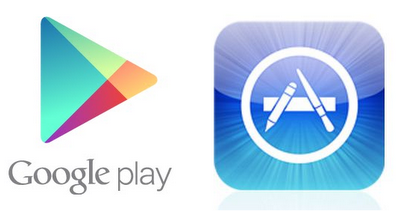Who Will Be The Third App Store?

Apple’s App Store and Google Play dominate the app store world – coined the Apple-Google duopoly. But with a duopoly comes disadvantages, and the emergence of a third player is becoming increasingly desirable for the market, particularly for developers and carriers.
This is especially true if you are a phone maker that doesn’t make a product that runs on iOS or Android. Just look at BlackBerry. The company recently released its latest versions of the BlackBerry smartphone, but whether or not its successful depends on the support it gets from wireless carriers and software developers. But the strengthening duopoly of Apple and Android is making it difficult for carriers to add new products to its stores.
“If you’re an operator or carrier, you’re looking at this landscape and thinking, well the role that we can play is diminishing,” said Tim Shepherd, senior analyst at research company Canalys. “For operators or carriers there’s a big support for a third ecosystem, basically to spread the risks, to balance the power of these huge companies Google and Apple.”
A third ecosystem would not only help increase competition among other smartphone makers, but it’s arguably better for consumers because more options means lower prices.
Currently, there are four major app stores: Apple’s App Store, Google Play, the Windows Phone Store and BlackBerry World. All four stores combined accounted for 13.4 billion app downloads in the first quarter, with Apple and Google representing the lion’s share. BlackBerry and Windows are fighting to gain ground to be considered the third option, but right now, it’s still very much a duopoly.
BlackBerry may have an advantage because while it has lost market share in the U.S., it is still popular abroad. However, it does face challenges emerging as the third player.
“They’ve gone though this painful transition moving over to BlackBerry 10 and building up their ecosystem effectively from scratch,” Shepherd said. “But they’ve made good progress, adding over 100,000 apps, but you’ve got to bear in mind, both Google and Apple have over 700,000 apps.”
Windows Phone Store is also actively trying to attract developers and currently has over 130,000 apps. “Microsoft is leveraging the fact that it has got full Windows desktop to try to get people to build apps, running both from Windows phone, but also on Windows for the desktop, Windows 8,” Shepherd said.
And let’s not forget all the other players in the market including FireFox, Ubuntu, and Amazon.com. So what you have here is a lot of players trying to do the same thing. The question is, who will emerge the winner?
One interesting note: BlackBerry’s prospects may also improve as the rumors persist that the company may be acquired. Either way, a third app store is good for everyone.